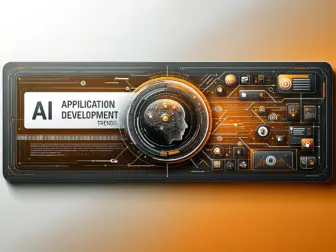Tag - AI industry trends
The Ever-Evolving World of AI: Industry Trends to Watch
Artificial Intelligence (AI) has been rapidly expanding across various industries, revolutionizing the way businesses operate and impacting the way we live and work. As AI technology continues to advance, it is essential for organizations to stay updated on the latest trends shaping the industry. Here are some key AI industry trends to watch:
1. Increased Adoption of AI in Business: Businesses across all sectors are increasingly incorporating AI into their operations to improve efficiency, productivity, and decision-making. From customer service chatbots to predictive analytics and personalized marketing, AI is being used to streamline processes and enhance the overall customer experience.
2. Emphasis on Ethical AI: With the growing reliance on AI systems, there is a heightened focus on ensuring ethical AI practices. Organizations are now prioritizing transparency, accountability, and fairness in AI algorithms to prevent bias and discrimination. As AI continues to shape our society, ethical considerations will play a crucial role in its development and adoption.
3. Advancements in Natural Language Processing (NLP): NLP is a branch of AI that focuses on enabling machines to understand and interpret human language. With the rise of voice assistants like Siri and Alexa, NLP technology has made significant strides in improving language processing capabilities. Businesses are leveraging NLP to automate customer interactions, analyze text data, and enhance communication channels.
4. Rise of AI-powered Automation: Automation has been a key driver of AI adoption, with businesses using AI-powered tools to automate repetitive tasks, data analysis, and decision-making processes. As AI technologies become more sophisticated, organizations are increasingly turning to automation to boost operational efficiency and reduce costs.
5. Edge AI and IoT Integration: Edge AI refers to AI algorithms that are processed locally on devices rather than in the cloud. With the proliferation of Internet of Things (IoT) devices, edge AI is being integrated to enable real-time processing and analysis of data at the device level. This trend is transforming industries such as healthcare, manufacturing, and smart cities by enabling faster decision-making and improved data privacy.
6. Continued Growth of AI-as-a-Service: As AI technology becomes more accessible, cloud providers are offering AI-as-a-Service solutions to enable businesses to harness the power of AI without the need for extensive in-house expertise. This trend allows organizations to leverage AI capabilities through scalable and cost-effective cloud platforms, driving innovation and competitiveness.
7. Focus on AI Governance and Regulation: With the rapid expansion of AI technologies, there is a growing need for governance and regulation to ensure responsible AI development and deployment. Governments and regulatory bodies are beginning to establish guidelines and frameworks to address issues such as data privacy, security, and algorithmic accountability in AI systems.
As the AI industry continues to evolve, staying informed about these trends will be crucial for organizations looking to leverage AI technologies to drive innovation and competitiveness in today’s digital landscape.
